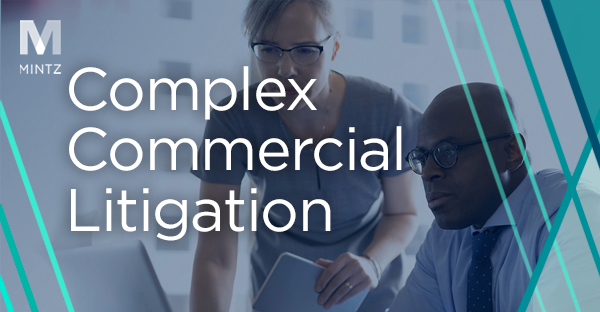What the COVID-19 Pandemic Means for Force Majeure Provisions
On March 11, 2020, the World Health Organization (“WHO”) declared COVID-19 to be a pandemic. In an earlier alert, we discussed the general effects a widespread outbreak of disease, such as COVID-19, may have on parties’ contract performance. With WHO’s recent declaration, we now look at the implications that a pandemic will have on contracts, particularly if they contain a force majeure provision.
(1) Do force majeure provisions specifically account for pandemics?
The declaration by the WHO brings some helpful clarity to the present situation. Some force majeure provisions specifically include pandemics as one of the triggering events. The WHO ultimately decides whether and when an illness reaches a pandemic level. Therefore, based on WHO’s recent declaration (and likely even for a period of time before), a contract containing a force majeure provision excusing performance due to an epidemic or a pandemic will likely relieve a party of its performance obligations under the contract. However, some force majeure provisions include additional requirements, such as the length of time that the pandemic event must last, or when, in relation to your contract performance, the declaration of a pandemic must be. Each contract should be analyzed individually.
(2) What if a force majeure provision does not specifically include pandemics?
Although the argument for triggering a force majeure provision might not be as straightforward if the force majeure provision is silent as to pandemics, there may still be arguments that performance should be excused based on one of the broader categories in the force majeure provision. To date, courts have provided little guidance on which specific events fall within the standard force majeure provisions, the most common of which include “Act of God” or “government action.”
Whether COVID-19 constitutes an “Act of God” will likely depend on the given jurisdiction. However, traditionally, Act of God events have referred to natural disasters. Black’s Law Dictionary, for instance, defines an Act of God as “[a]n overwhelming, unpreventable event caused exclusively by forces of nature, such as an earth-quake, flood, or tornado.”[1] Conversely, at least one court has defined an Act of God more broadly as, “a providential occurrence or extraordinary manifestation of the forces of nature which could not have been foreseen and the effect thereof avoided by the exercise of reasonable prudence, diligence and care, or by the use of those means which the situation renders reasonable to employ.”[2] Once again, the specifics of each force majeure provision are important. If it contains examples of “Acts of God” such as an earthquake, flood, or tornado (but not disease or illness), a court may be less likely to conclude that a disease, albeit one on a pandemic level, such as COVID-19, is an “Act of God.” Alternatively, if the provision is less specific or includes many different types of examples, it might be easier to argue that COVID-19 falls within this category.
Additionally, parties may be able to argue that delays or suspension of performance may be excused because of “government action.” For some contracting parties, COVID-19 itself may not have a direct impact, but nonperformance may still result because of the recent actions taken by local and state governments. Certainly, government actions such as the travel bans and the national emergency declared by President Trump,[3] or the state of emergency instituted by Governor Baker in Massachusetts will constitute government action, but the specific application to the contract at issue will need to be analyzed.
(3) My contract does not contain any categories or a list of force majeure events. Can nonperformance still be excused?
Some force majeure provisions may not explicitly list examples, and may simply state that a party will be excused for nonperformance due to unforeseeable events arising through no fault of its own and beyond its reasonable control. A party attempting to use such a clause to excuse its nonperformance or delay in performance due to COVID-19-related circumstances will still likely have to convince the court that it attempted to carry out its performance, but could not do so without incurring some unreasonable expense due to the pandemic.[4]
Endnotes
1 Act of God, Black’s Law Dictionary (11th ed. 2019)
2 Milazzo v. Harvey, 245 So. 3d 346, 352 (2d Cir. 2018).
3 The National Emergency was announced by President Trump on March 13, 2020. As of publication, no declaration has been issued by the White House.
4 See Jin Rui Grp., Inc. v. Societe Kamel Bekdache & Fils S.A.L., 621 Fed. Appx. 511, 511 (9th Cir. 2015).




